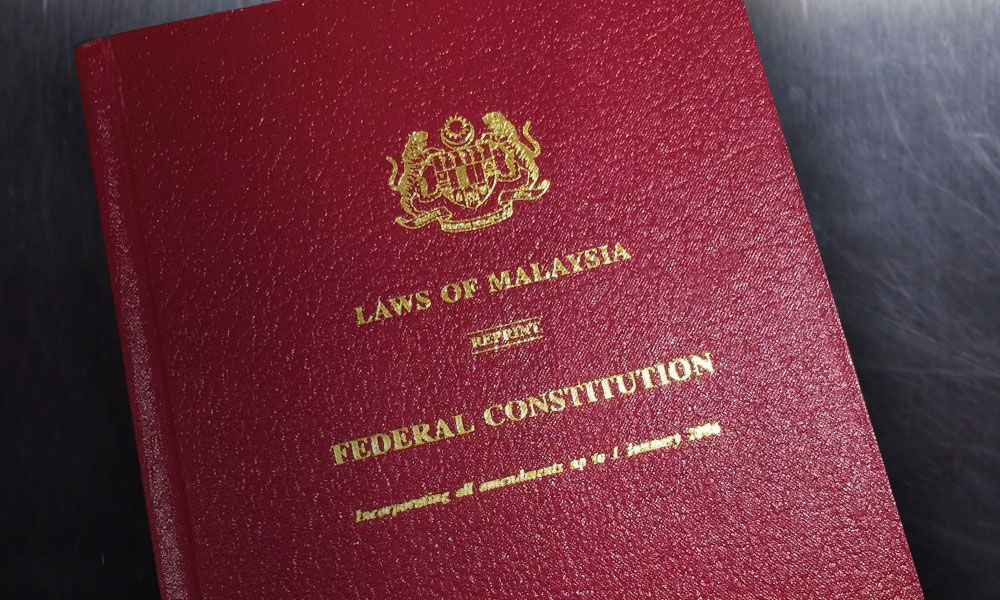A provision in the supreme law of Malaysia allowing only Malaysian fathers to obtain automatic citizenship for their overseas-born children is not discriminatory, contended Home Minister Hamzah Zainudin.
He made this assertion in his affidavit-in-reply for the government of Malaysia, which is the target of a suit seeking automatic citizenship for overseas-born children of Malaysian mothers and foreign fathers.
Through the legal action filed at the Kuala Lumpur High Court on Dec 18 last year, six Malaysian mothers and family rights group Family Frontiers sought a declaration that Malaysian women married to foreign spouses can automatically get citizenship for their children born overseas.
The suit was initiated after the government refused to budge on allowing the children of these mothers to be eligible for citizenship.
The seven plaintiffs contended, among others, that certain provisions in Malaysia's Federal Constitution, which only grants Malaysian fathers the right to confer automatic citizenship on their children born overseas, as discriminatory to Malaysian women with foreign spouses.
They claimed that this contravened the fundamental right to equality before the law and equal protection of the law, as enshrined under Article 8 of the Federal Constitution.

The suit is challenging the validity of Article 14(1)(b), which, when read with qualifications stated in Part II of the Second Schedule of the Federal Constitution, in effect grants only Malaysian fathers the right to obtain automatic citizenship for their children born overseas.
According to Hamzah’s affidavit sighted by Malaysiakini, the minister contended that Article 14(1)(b), when read together with Sections 1(b) and 1(c) of Part II of the Second Schedule of the Federal Constitution, does not amount to discrimination.
Section 1(b) states that every person born outside the Malaysian federation, whose father is at the time of the birth a citizen, and either was born in the federation or is at the time of birth in the service of the federation, is a citizen by operation of law.
Section 1(c) states that a person is also a Malaysian citizen by operation of law if he or she was born in the federation when the father, at the time of birth, was a citizen, among others.
“A proviso in Article 8(2) of the Federal Constitution is applicable for Articles 14 and 15 of the Federal Constitution.
“Therefore, Article 8 of the Federal Constitution is not applicable to Article 14(1)(b) when read together with Sections 1(b) and 1(c) of Part II of the Second Schedule of the Federal Constitution,” Hamzah claimed.
Article 8 (2) states "except as expressly authorised by this Constitution, there shall be no discrimination against citizens on the ground only of religion, race, descent, place of birth or gender in any law or in the appointment to any office or employment under a public authority or in the administration of any law relating to the acquisition, holding or disposition of property or the establishing or carrying on of any trade, business, profession, vocation or employment".
Hamzah (above) was referring to the proviso "except as expressly authorised by this Constitution…’ in Article 8(2).
Article 15 deals with the matter of application for citizenship by wives and children of Malaysian citizens who are men.
'Court has no jurisdiction'
The minister claimed that the legal relief sought by the seven plaintiffs through the suit contravenes with clear and settled existing laws.
“The defendant has made ‘reservation’ regarding the matter of citizenship in the Convention on the Elimination of All Forms of Discrimination Against Women (CEDAW) and Convention on the Rights of the Child (CRC).
“Therefore, the plaintiffs have no legitimate expectation over the federal government’s international obligation enshrined under the ‘reservation’,” Hamzah contended.
The minister also claimed that the court has no jurisdiction to hear the seven plaintiffs’ originating summons because it involves the issue of the government conferring citizenship.
“All affairs regarding the granting of citizenship by the government are matters that are non-justiciable by this honourable court because it involves considerations that are not suitable for judicial decision,” Hamzah contended.
"Whatever the decision of the federal government under Article 15 of the Federal Constitution is outside the jurisdiction of this honourable court to review.
“In this originating summons, the plaintiffs are not challenging the federal government’s discretion in regard to the process, consideration nor challenge the decision on their applications under Article 15 of the Federal Constitution,” he claimed.
Previously on May 6, the High Court dismissed the government’s application to strike out the suit. The government has since appealed to the Court of Appeal.
The government had sought to strike out the suit due to it being ‘frivolous’, among other reasons.
No date fixed to hear stay application
Meanwhile, when contacted today, the plaintiffs’ lawyer Joshua Andran revealed that the government has filed an application to stay the main suit, pending disposal of the appeal at the Court of Appeal.
He said that the High Court has yet to fix a date to hear the stay application, due to today’s initially-scheduled case management of the matter being vacated due to the total lockdown as part of the movement control order (MCO 3.0) in force nationwide.
Through the originating summons, the seven plaintiffs sought a declaration that Article 14(1)(b) of the Federal Constitution read with the Second Schedule, Part II, sections 1(b) and 1(c) were discriminatory and violated Article 8.
The suit seeks a declaration that the children of these Malaysian mothers should also be granted the right to citizenship.
It also seeks to compel the government and its agencies to issue citizenship documents, including identity cards and passports, to all children born outside of Malaysia, whose mothers are Malaysians. - Mkini




No comments:
Post a Comment
Note: Only a member of this blog may post a comment.